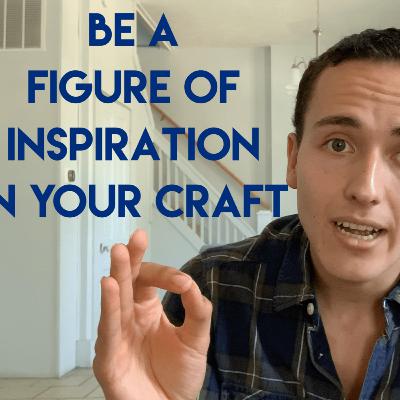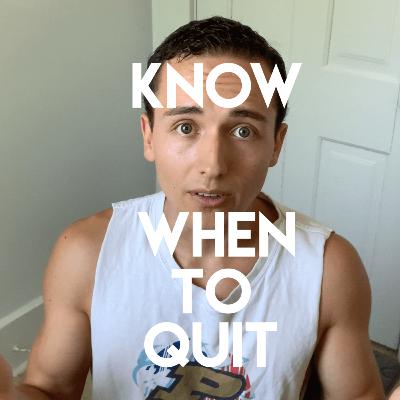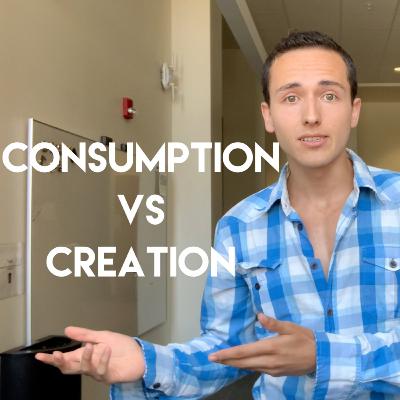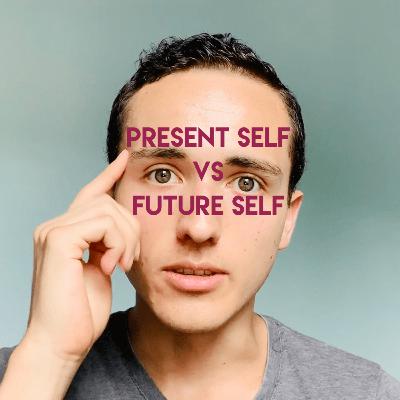Discover Cómo Cae La Luz: Preguntas De Un Coach Que Reflejan La Esencia De Nuestros Miedos Y Anhelos
Cómo Cae La Luz: Preguntas De Un Coach Que Reflejan La Esencia De Nuestros Miedos Y Anhelos

Cómo Cae La Luz: Preguntas De Un Coach Que Reflejan La Esencia De Nuestros Miedos Y Anhelos
Author: Santiago Barragan Noguera
Subscribed: 0Played: 0Subscribe
Share
© Santiago Barragan Noguera
Description
Nuestras perspectivas de vida dependen de la luz con la que las observamos: nuestras actitudes, motivaciones y prioridades. Diferentes aspectos de la vida se revelan cuando nos permitimos mirar bajo una nueva luz. Que este sea un espacio para descubrir, lo que siempre estuvo ahí: perspectivas diferentes sobre cómo perseguir el proyecto de una buena vida.
En cada episodio, Santi comparte una pregunta de coaching que, a lo largo de los años, y gracias al contraste de respuestas de sus clientes, le ha permitido entender lo que la vida puede ser cuando se observa a través de los ojos de otros.
En cada episodio, Santi comparte una pregunta de coaching que, a lo largo de los años, y gracias al contraste de respuestas de sus clientes, le ha permitido entender lo que la vida puede ser cuando se observa a través de los ojos de otros.
25 Episodes
Reverse
"A true mentor guides you through the path of self-discovery."
“The adequate teacher provides the tools for unobstructed self-expression… He teaches you to get out of your own way. He pushes you to the stretch point. He dances with you at the edge of your ability”. Josh Waitzkin
A valuable mentor conveys:
1. The power of loving yourself in the scope of your own process.
2. The importance of defining what is meaningful and the reasons why you devote yourself to your art.
3. The significance of honoring the struggle.
4. The need for creating and not only replicating.
5. The value of enhancing relationships that support your goals and that are ready to catch you when you fall.
6. The difference between quitting because of hardship and quitting because it isn’t the right thing for who you are.
"Remember to inspire by example, and communicate honest appreciation. In addition, help them to be the person they aspire to be, not who you aspire to be."
"You cannot be a figure of inspiration for someone without being at the same time a reason for a laugh for another one."
"The judgment of skill comes from a point of reference." What you might not realize is that by not sharing your progress you are taking away the possibility to inspire someone who looks up to you."
"The reality is that your work/progress can always be appreciated… only if you can acknowledge that it will also be judged as ordinary, mediocre and average for others. * "A sense of relief comes when you stop showing your milestones with the intention of earning validation and respect, and realize that every milestone you achieve gets you closer to adopt a new identity."
James Clear, author of Atomic Habits, expresses that "every action you take is a vote for the type of person you want to become. Therefore, the goal is not to run a marathon, the goal is to become a runner. Similarly, the goal is not to write a book, the goal is to become a writer."
"To adopt a “new identity” you don’t need to be part of the elite group of the best in the world. Understand that at whatever stage you are in your journey you have the power to inspire others using your own story of how you arrived to do something you couldn’t do before."
Discutiendo la obra de Daniel Goldhagen
La búsqueda de integridad y no de perfección
Una breve reflexión sobre el origen de las diferencias de ideologías políticas
Hablar con la verdad, sabiendo que no todo lo que se considere verdad tenga que ser dicho
Una reflexión sobre la superioridad moral para juzgar los actos de otros
Una perspectiva para concebir con humildad las victorias propias
Y que si el costo dela inacción es más alto en el largo plazo?
Reflexión sobre cómo los días de cada experiencia, positiva o negativa están contados
El concepto de justo medio aplicado a las virtudes
Conectar con el mundo o con unos pocos?
Las consecuencias de segundo y tercer grado.
Analogía para capturar la naturaleza de los pensamientos y las memorias del pasado.
"Are you quitting because it is too difficult? Are you quitting because you don’t see the progress? Perhaps because it makes you feel incompetent? None of the reasons above are good indicators to quit."
"What then is a good reason to quit? To my knowledge, you have the right to quit when you realize that... it is not right enough for who you are TODAY." "Getting emotionally attached to an activity you spent a lot of energy, emotion, attention, or money to obtain reflects what in economics is known as the “Sunk Cost Fallacy”."
"Do you really want to get to the top of the mountain only to notice you climbed the wrong mountain? Today you can take a new decision with new information."
"Treat quitting as a lifesaver, as if you only had a couple to use in your lifetime. Stick with something until you realize it is not helping you get where you want."
Everyone has the responsibility to create, to give... not only to consume
"The marketing argument to convince the adaptation of the mainstream culture was that it would make you feel part of the community. It makes you feel validated by others by having a common topic to talk about."
"You have to filter what you consume on a daily basis to avoid thrash content."
"To start applying, you need to start creating."
"Write your ideas to organize them much deeper in your head. Make them visible, share them as a gift to the world.
"At best, you will be involved in a thoughtful disagreement where the weaknesses and the blind spots of your creation will raise to the surface."
Call for action:
"I beg you to evaluate the quality of the content you consume, to consider creating today with what you have learned, and to engage in open discussions. "
"We need more of your thoughtful perspectives, otherwise, we will keep drowning in average content, irrelevant news, uninformed views, and ultimately in the wrong conversations."
"Managing the tension between your present self and your future self requires thoughtful design."
"It is through the concept of delayed gratification that the present self shows how much one cares for the future self." "Future self has to pay for the regret of the unexplored potential."
"You either get the pain from the experience or later for the regret."
"You don’t want to be the addict who jumps from one shiny object to the next in search of more dopamine only to realize that every expedient experience will never fulfill you inside."
"On the other hand, taking life too seriously by assuming too much responsibility can distract you from spending enough time with loved ones and losing sensibility and appreciation for the ordinary things."'
In order to build consistency, try applying this framework:
1. Your core values need to align with your daily actions. The reason why you might struggle to create new habits is because you either don’t value them enough to rewire your lifestyle or you are captured by a self-limiting belief. You have to be exposed to other people that value those habits. Don’t look at their results, observe their lifestyle and processes, and ask yourself if you are willing to commit to those.
2. Strong reasons, will bring strong motivation. When you start running out of the emotional drive you need to tap into the reason why you cannot stop, the reason you doing this in the first place, and why you cannot fail the people who count on you.
3. Specificity will bring clarity: when, where, and how The more clear you are on the details the better your probability to succeed will be.
WOOP Wish: Explicitly articulate what it is that you want Outcome: Visualize how the end result would it look like, and how it would feel Obstacles: What could go wrong Plan: How can you tackle those obstacles
James Clears advice to - Optimize the physical environment to facilitate starting. You want your environment to trigger to do a behavior.
- Every time you succeed, give yourself a treat.
- Accumulation of actions becomes the evidence of who you are. The goal is not to change behavior, process or results but rather to reshape your identity
Tips for you
- Lower your standard, make every day achievable. 10min of imperfect work will always be better than the ideal 60-minute session that never happens.
- Go for incremental progress, and be kind to yourself. Reprogramming your unconscious, and managing your emotional self is by no means easy - Get support from the people around you, hire a coach if you need guidance - Build your own pace, don’t feel pressured to deliver results fast
Reference:
Gabriele Oettingen - Rethinking Positive Thinking: Inside the New Science of Motivation
James Clear - Atomic Habits
The key to acquiring knowledge, building skills, and strengthening your relationships is consistency.
This episode was made to present what I consider a more appropriate mindset regarding this topic:
People like intensity because
- Is easy to measure
- Due to our wiring for instant gratification
- Our inability to see how small, unsexy, smart decisions on a consistent basis lead to incomprehensible results
“Not everything that counts can be counted, and not everything that can be counted, counts.” Albert Einstein
High Performers Play the long game. In other words, they ask themselves “what do I need to today to be great 8 - 10 years?” The volume of reps is still the priority, but they drop the expectation for quick improvement. Learn to appreciate the feeling of accomplishing the task of the day
Keep an eye for part 2 where I will be breaking down how to create better habits, and how to build more endurance and consistency.
Principles for Deliberate Practice
1. Treat your work as a science
2. You get better by modeling the experts on the field, studying the work of masters.
3. Record yourself and study yourself failing
4. Have access to immediate and consistent feedback from others (especially those who have had much more exposure than you)
Understand that even if you are putting the time and the effort to learn something… the cruel reality is that it doesn’t mean you are actually getting better at it. The end goal is to be mindful at all times of what you are doing, how are you doing it, and more importantly… why you are doing it.
References 😃: Joshua Foer













